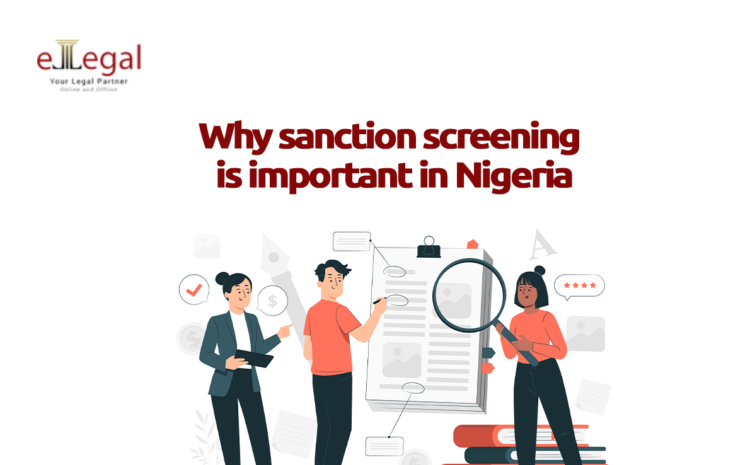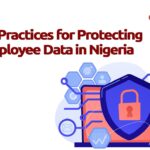
In today’s globally interconnected business environment, companies in Nigeria cannot afford to ignore the importance of sanctions screening. Governments and international bodies impose sanctions on individuals, entities, and entire countries to combat money laundering, terrorism financing, corruption, and other financial crimes. Businesses that fail to comply with these regulations risk severe financial penalties, reputational damage, and even criminal liability.
This blog highlights the significance of sanctions screening, the role of technology in ensuring compliance, best practices for effective screening, and why our company is the trusted partner to help businesses navigate the complex regulatory landscape.
What is Sanctions Screening?
Sanctions screening is the process of verifying individuals, companies, and transactions against official sanctions lists issued by various regulatory bodies. These lists include:
- The United Nations (UN) Consolidated Sanctions List
- The U.S. Office of Foreign Assets Control (OFAC) List
- The European Union (EU) Consolidated Sanctions List
- The United Kingdom’s HM Treasury Sanctions List
- Nigeria’s Central Bank (CBN) and Financial Intelligence Unit (NFIU) Watchlists (Nigeria sanction list)
Sanctions may impose financial restrictions, trade embargoes, travel bans, or other prohibitions on listed entities. Nigerian businesses especially those in banking, fintech, oil & gas, real estate, and international trade must conduct regular and thorough sanctions screenings to avoid inadvertently engaging with restricted entities.
Why Sanctions Screening is Non-Negotiable for Businesses in Nigeria
- Avoiding Costly Penalties and Legal Consequences
Non-compliance with sanctions laws can result in heavy fines, business shutdowns, and legal action.
Nigerian businesses dealing with international trade, remittances, and cross-border transactions are particularly vulnerable and must have a robust sanctions compliance framework in place.
- Protecting Business Reputation and Market Credibility
A sanctions violation does more than attract legal penalties, it can permanently damage a company’s reputation. In the digital age, news spreads quickly, and businesses associated with financial crimes can lose customer trust, investor confidence, and banking relationships.
Nigerian companies must ensure they do not become facilitators of illegal financial activities.
- Ensuring Ethical and Responsible Business Practices
Sanctions screening helps businesses avoid unknowingly engaging with terrorist organizations, corrupt officials, and human rights violators. Governments impose sanctions on individuals and entities that:
- Fund terrorism
- Engage in human trafficking or modern slavery
- Facilitate corruption or fraud
- Violate international trade laws
By implementing strict sanctions screening policies, businesses in Nigeria can demonstrate corporate responsibility and maintain strong relationships with international partners.
Best Practices for Effective Sanctions Screening
To ensure compliance and protect business operations, Nigerian companies should follow these best practices:
- Conduct Regular and Consistent Screening
Sanctions lists are updated frequently. Businesses should screen all clients, suppliers, and transactions on an ongoing basis, not just at the onboarding stage.
- Screen All Involved Parties
Many sanctions violations occur due to indirect dealings. Companies should screen:
- Direct customers and suppliers
- Beneficial owners of businesses
- Intermediary banks and third-party vendors
- Politically Exposed Person (PEP) Screening
A Politically Exposed Person (PEP) is an individual with a prominent public role who poses a higher risk of corruption and money laundering. Nigerian businesses must screen PEPs before engaging in financial transactions.
- Implement a Risk-Based Approach
Not all transactions pose the same level of risk. Companies should allocate more resources to screening high-risk clients, high-value transactions, and business dealings in restricted regions.
- Continuous Monitoring and Real-Time Updates
Sanctions lists change frequently, meaning businesses must ensure they:
- Continuously monitor transactions and customers.
- Update databases with newly sanctioned individuals and companies.
- Receive real-time alerts for suspicious activities.
- Maintain Detailed Compliance Records
Accurate documentation is crucial in case of an audit or regulatory investigation. Companies must:
- Keep logs of all sanctions screenings.
- Document any potential matches and actions taken.
- Ensure compliance reports are readily available for authorities.
- Train Employees on Sanctions Compliance
Sanctions screening is not just for compliance officers—all employees involved in financial transactions should receive regular training on:
- Identifying red flags in business transactions.
- Using sanctions screening software effectively.
- Reporting suspicious activities to compliance officers.
Why Choose Our Company for Sanctions Compliance in Nigeria?
eLegal Consultants is a leader in regulatory compliance solutions, helping businesses in Nigeria and beyond navigate the complexities of sanctions laws.
What Sets Us Apart?
✅ Expertise in Nigerian and International Sanctions Regulations
Our team consists of seasoned compliance specialists who understand the legal frameworks governing sanctions in Nigeria, the U.S., the UK, and the EU.
✅ Advanced Technology for Automated Screening
We provide cutting-edge AI-driven solutions for real-time sanctions and PEP screening, ensuring accurate risk assessment.
✅ Tailored Risk Management Solutions
Every business has unique risks. We offer customized compliance strategies to fit your industry and operational needs.
✅ Regulatory Compliance Training for Your Team
We offer comprehensive training programs to ensure your employees understand and comply with sanctions laws.
✅ 24/7 Compliance Support and Advisory Services
Our dedicated compliance team provides round-the-clock support to help businesses handle potential sanctions risks and reporting requirements.
Conclusion
Sanctions screening is not optional but a critical business function that protects companies from legal liabilities, financial penalties, and reputational damage. In a globalized economy, Nigerian businesses must adopt best practices, leverage technology, and ensure continuous compliance with ever-evolving sanctions laws.
With eLegal Consultants as your compliance partner, you can safeguard your business, stay ahead of regulatory changes, and ensure a secure and ethical business environment.
Contact us today to strengthen your sanctions compliance framework and protect your company from unnecessary risks.




